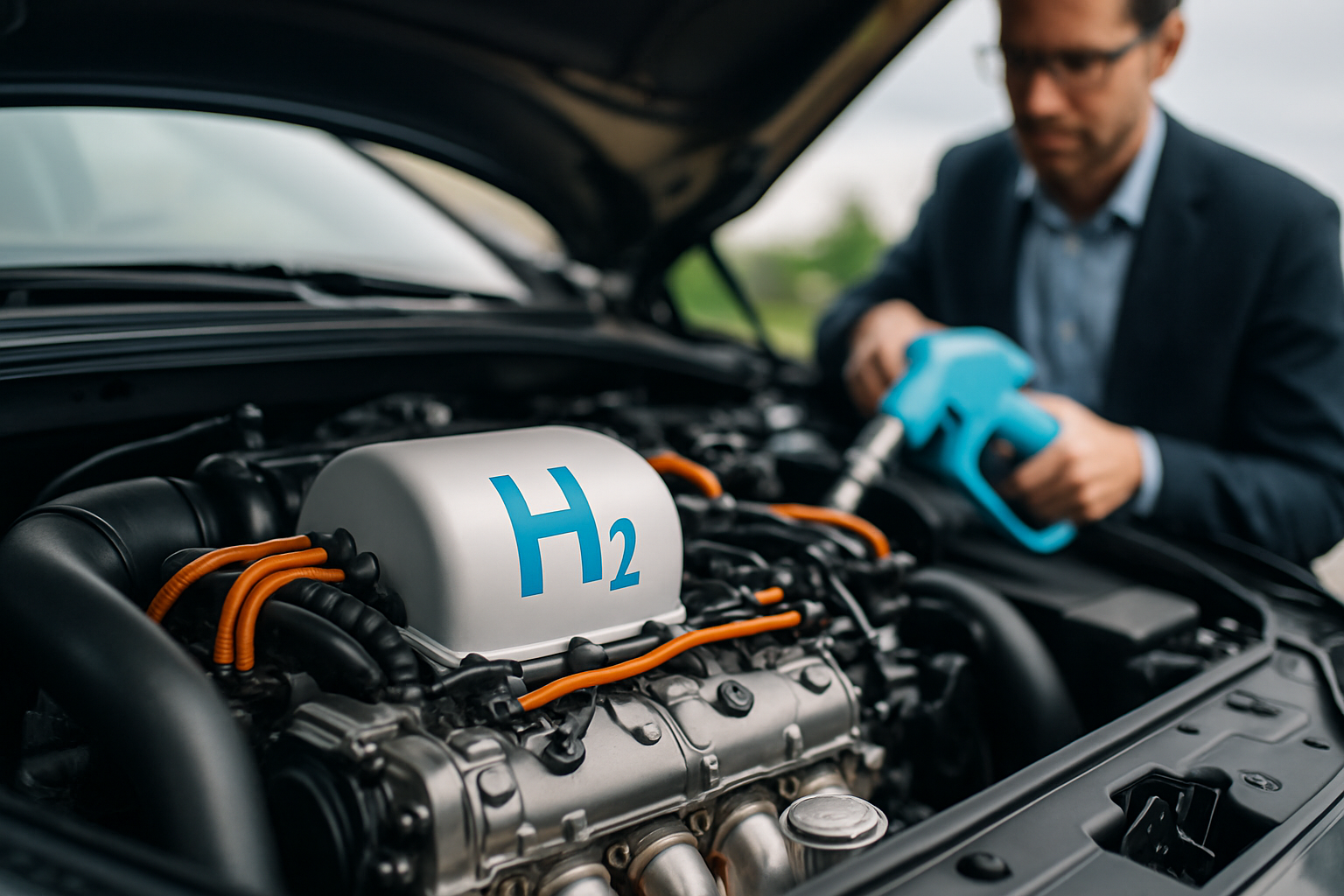Synthetic Fuels: The Unexpected Savior of Internal Combustion Engines
In a world racing towards electrification, an unexpected contender emerges from the shadows of traditional fossil fuels. Synthetic fuels, once relegated to the realm of high-performance motorsports, are now poised to revolutionize the automotive industry. As we stand at the crossroads of environmental consciousness and the enduring allure of internal combustion engines, these laboratory-crafted fuels offer a tantalizing compromise. But can they truly deliver on their promise of cleaner, more sustainable motoring without sacrificing the visceral thrill of a roaring engine?

Breaking Down the Production Process
The production of synthetic fuels involves several key steps. First, renewable electricity is used to split water molecules into hydrogen and oxygen through electrolysis. This green hydrogen is then combined with captured CO2 in a process called Fischer-Tropsch synthesis, named after the German chemists who developed it in the 1920s. The resulting hydrocarbons can be refined into various fuel types, including gasoline, diesel, and even jet fuel. The beauty of this process lies in its potential for carbon neutrality – the CO2 released when burning the fuel is offset by the CO2 captured during production.
Environmental Impact and Efficiency Challenges
While synthetic fuels offer a path to carbon-neutral motoring, they are not without their challenges. The production process is energy-intensive, requiring significant amounts of renewable electricity to be truly sustainable. Critics argue that this electricity could be more efficiently used to power electric vehicles directly. However, proponents of synthetic fuels counter that they offer a solution for hard-to-electrify sectors such as aviation and long-haul trucking. Moreover, they provide a way to decarbonize the existing fleet of internal combustion engine vehicles without the need for widespread infrastructure changes.
The Role of Synthetic Fuels in Motorsports
The world of motorsports has long been a testing ground for automotive innovations, and synthetic fuels are no exception. Formula 1 has announced plans to introduce 100% sustainable fuels by 2026, with other racing series following suit. This move not only reduces the carbon footprint of motorsports but also serves as a high-profile showcase for synthetic fuel technology. The extreme conditions of racing provide valuable data on performance and reliability, which can then be applied to consumer vehicles.
Compatibility with Existing Infrastructure
One of the most compelling arguments for synthetic fuels is their compatibility with existing infrastructure and vehicles. Unlike the shift to electric vehicles, which requires substantial changes to both vehicle fleets and fueling networks, synthetic fuels can be used in current internal combustion engines with little to no modification. This means that the transition to cleaner fuels could happen more quickly and with less disruption to consumers and industry alike. Gas stations could simply switch to synthetic fuels without the need for extensive renovations or new equipment.
The Economics of Synthetic Fuel Production
Currently, the production of synthetic fuels is considerably more expensive than traditional fossil fuel extraction and refining. However, as with many emerging technologies, economies of scale and technological advancements are expected to drive down costs over time. Several major automakers and energy companies are investing heavily in synthetic fuel development, betting on its potential to extend the life of internal combustion engines in an increasingly carbon-conscious world. The key to economic viability lies in the scaling up of production facilities and the continued reduction in the cost of renewable energy.
Regulatory Landscape and Government Support
The future of synthetic fuels will be heavily influenced by regulatory decisions and government support. Some countries, particularly in Europe, are exploring ways to include synthetic fuels in their emissions reduction strategies. This could include tax incentives for producers and consumers, as well as recognition of synthetic fuels as a viable alternative to electrification in certain sectors. However, the regulatory landscape remains complex and varies significantly between regions, creating uncertainty for investors and manufacturers.
The Consumer Perspective: Performance and Practicality
For many car enthusiasts, the prospect of synthetic fuels offers hope for the preservation of classic and performance vehicles in a carbon-neutral future. These fuels promise to deliver the same driving experience and performance characteristics as traditional gasoline, without the environmental guilt. Additionally, for consumers in areas where electric vehicle charging infrastructure is limited, synthetic fuels could provide a more practical path to reduced emissions. The familiar process of refueling at a pump, combined with the potential for longer range compared to current electric vehicles, makes synthetic fuels an attractive option for many drivers.
Looking to the Future: A Diverse Energy Landscape
As we look to the future of automotive propulsion, it’s becoming clear that there may not be a one-size-fits-all solution. While electric vehicles are likely to dominate in urban environments and for short to medium-range travel, synthetic fuels could play a crucial role in other sectors. The most likely scenario is a diverse energy landscape where different technologies coexist, each serving the needs of specific use cases. Synthetic fuels may find their niche in preserving vintage cars, powering long-haul transportation, and providing a transitional technology for regions where rapid electrification is challenging.
In conclusion, synthetic fuels represent a fascinating development in the ongoing quest for sustainable mobility. While they are not a panacea for all of our transportation-related environmental challenges, they offer a promising path forward that balances the need for reduced emissions with the practical realities of our current infrastructure and the emotional attachment many have to internal combustion engines. As research continues and production scales up, synthetic fuels may well become an integral part of our automotive future, allowing us to preserve the thrilling sound and feel of combustion engines while dramatically reducing their environmental impact.






